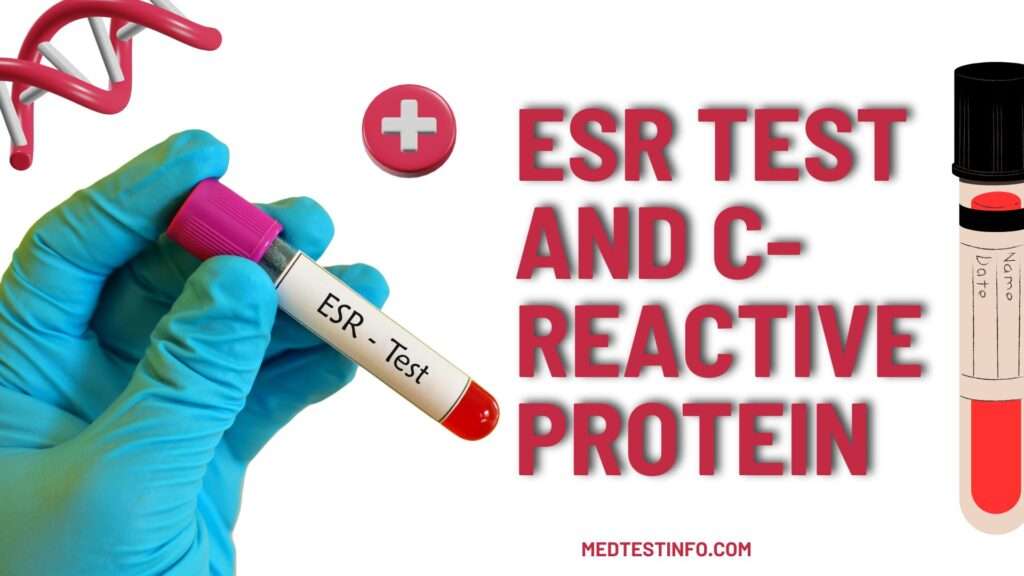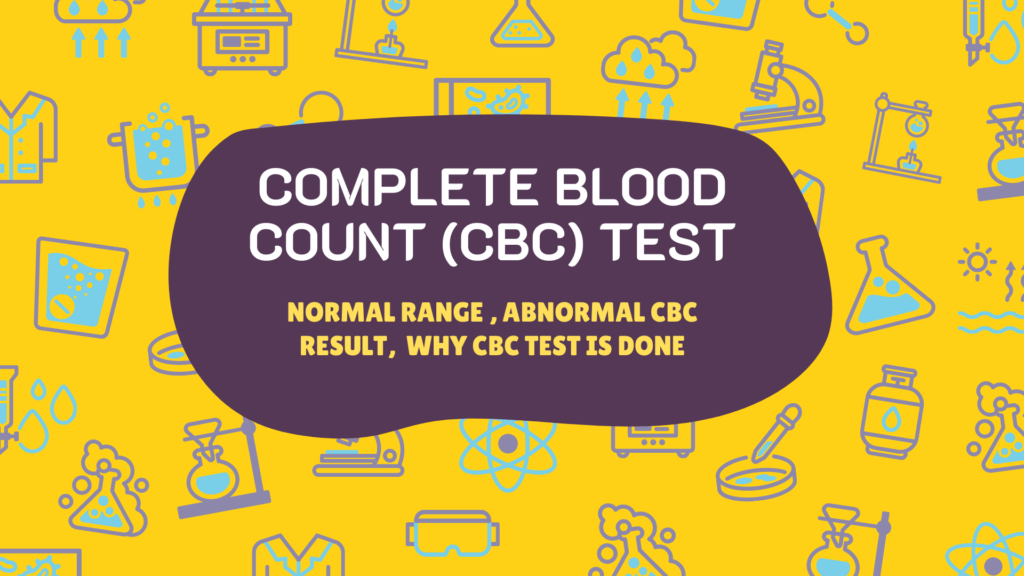
Your blood tells the story of your well-being—an annual test ensures each chapter begins with good health
Introduction: Importance Of Annual Health Checkups
Annual health checkups are vital for long-term well-being. They enable individuals to spot potential health issues early on, providing a proactive approach to treatment. Checkups help people avoid future health concerns and stay healthy by recognizing risk factors before problems occur.
Role Of Blood Tests In Preventive Health Care
Recommended yearly blood tests are one of the most important aspects of a complete annual checkup. These tests reveal information about your health, including organ function, metabolic activity, dietary levels, and immune system condition.
How Regular Monitoring Helps In Early Detection Of Diseases
By following your health regularly, including suggested annual blood tests, you can detect cardiovascular disease, diabetes, liver dysfunction, and others before they become symptoms. The earlier a disease is recognized, the easier it is to treat or control, improving health outcomes and lowering medical expenses.
An Overview Of The Article Focus On Essential Blood Tests
This guide will discuss the most essential suggested annual blood tests. From the Complete Blood Count (CBC) to more specialized tests such as liver function and thyroid panels, we will explain what each test measures, why it is essential, and how the results might be interpreted. These tests are required for everybody who wants to maintain good health and avoid severe medical disorders.
1. Complete Blood Count (CBC)
What is the CBC?
The Complete Blood Count (CBC) is one of the most common and significant blood tests, offering a thorough picture of your blood’s condition. It tests red blood cells, white blood cells, hemoglobin, and platelets to diagnose infections and anemia.
Why CBC Test Is Important?
A complete blood count (CBC) test can help diagnose anemia, infections, and potentially blood tumors. It is an essential component of any annual health evaluation since it assesses the condition of your blood, which is required for oxygen delivery, infection resistance, and clotting.
Critical Components Of The CBC
Red Blood Cell (RBC) Count: Determines the number of red blood cells that deliver oxygen.
The normal range of RBC’s for men is 4.7-6.1 million cells/µL, and for women, it is 4.2-5.4 million cells/µL.
Abnormal Results: A low RBC count may indicate anemia, whereas a high count could indicate dehydration or heart disease.
Hemoglobin: Hemoglobin is a protein in red blood cells that transports oxygen.
Hemoglobin normal ranges for men’s are 13.8-17.2 g/dL, while women’s is 12.1-15.1 g/dL.
Abnormal results: Low hemoglobin levels may indicate anemia, whereas high levels may indicate dehydration or lung disease.
White Blood Cell (WBC) Count: The immune system’s first line of defense against infection.
Typical range of WBC: 4,500-11,000 cells per µL.
Abnormal Results: High levels may suggest infection or inflammation, while low levels may indicate immune system diseases or bone marrow issues.
Platelet Count: Platelets are essential for blood clotting.
The normal range is 150,000-450,000 platelets/µL.
Abnormal results: A low platelet count raises the risk of bleeding, whereas a high count may indicate clotting problems.
When Should I Get It Done?
A complete blood count (CBC) should be performed yearly to establish a health baseline and detect early indicators of diseases such as anemia, infections, or clotting issues.
How Are Results Interpreted?
A healthcare provider should always interpret CBC results, as normal ranges vary depending on age, gender, and specific medical conditions.
A low RBC count may indicate anemia caused by iron or vitamin deficiency.
An elevated WBC count may indicate an infection or inflammatory disease.
Abnormal platelet levels may indicate a bleeding disease or bone marrow abnormalities.

2. Lipid Profile
What Is A Lipid Profile Test For?
A lipid profile examines the lipids and cholesterol in your blood, which are essential heart health indicators. This test measures HDL (high-density lipoprotein), LDL (low-density lipoprotein), triglyceride, and total cholesterol levels.
Why Is It Essential For Heart Health?
Heart disease is among the top causes of death worldwide. Regularly monitoring cholesterol and triglyceride levels is critical for identifying risk factors early. The lipid profile is essential to your prescribed annual blood testing, particularly if you have a family history of heart disease or other cardiovascular risk factors.
Critical Elements Of The Lipid Profile
HDL (High-Density Lipoprotein): Also known as “good cholesterol,” HDL helps eliminate LDL from the bloodstream.
The normal range of HDL is >40 mg/dL for men and >50 mg/dL for women.
Abnormal HDL results: Low HDL levels increase the risk of heart disease, whereas high levels protect against it.
LDL (Low-Density Lipoprotein): High levels of LDL, sometimes known as “bad cholesterol,” can cause plaque accumulation in arteries, raising the risk of heart disease.
Normal LDL range: <100 mg/dL
Abnormal LDL Results: Elevated LDL cholesterol raises the risk of heart attack and stroke.
Triglycerides: Triglycerides are a form of fat found in blood. Elevated levels are linked to an increased risk of cardiovascular disease and metabolic diseases.
Normal range: <150 mg/dL
Abnormal Results: High triglycerides frequently indicate a poor diet, obesity, or metabolic syndrome.
Cholesterol Level And The Risks Of Cardiovascular Disease
Controlling cholesterol levels is essential for avoiding heart disease.
Total Cholesterol: To reduce cardiovascular risk, total cholesterol levels should be fewer than 200 mg/dL.
LDL and HDL Balance: The ideal lipid profile has low LDL and high HDL values.
Lifestyle Impact: Diet, physical exercise, and smoking can all impact cholesterol levels; therefore, adopting a healthy lifestyle is crucial.
When Should I Get It Done?
It is suggested that you have a lipid profile performed as part of your yearly health checkup, especially if you are over 40 or have a family history of heart disease.
3. Blood Sugar (Fasting glucose and HbA1c)
Fasting Blood Glucose Vs HbA1c
Blood sugar testing is essential for determining glucose levels and diagnosing diabetes. The Fasting Blood Glucose test measures your blood sugar after you’ve fasted for at least 8 hours, whereas the HbA1c test averages your blood sugar levels over the previous 2-3 months.
The normal range for fasting blood glucose is 70-100 mg/dL.
Abnormal Results: Levels more significant than 126 mg/dL suggest diabetes.
The normal HbA1c range is less than 5.7%.
Abnormal Results: An HbA1c level of 5.7% to 6.4% indicates prediabetes, whereas 6.5% or above indicates diabetes.
Importance Of Detecting Prediabetes And Diabetes
Prediabetes frequently has no symptoms but can lead to full-blown diabetes if left untreated. Early detection by suggested annual blood tests such as fasting glucose and HbA1c can help you prevent or manage diabetes.
How Frequently Should Glucose & HbA1c Tests Be Conducted?
Even if you do not have diabetes, you should check your blood sugar levels once a year, especially if you have risk factors such as obesity, a family history, or a sedentary lifestyle.
4. Liver Function Test (LFT)
Critical Markers Of Liver Health
The liver is responsible for cleansing the body and controlling metabolic activities. Liver function tests (LFTs) measure indicators such as ALT (alanine aminotransferase), AST (aspartate aminotransferase), ALP (alkaline phosphatase), and bilirubin.
ALT normal range is 7-55 U/L
AST normal range is 8–48 U/L
Bilirubin normal range is 0.1-1.2 mg/dL
Monitor Liver Health On An Annual Basis?
Annual monitoring is required because liver diseases, such as hepatitis or fatty liver disease, sometimes develop silently. Regular LFTs can help discover certain diseases before they cause significant harm.
Effects Of Medicines, Alcohol, And Diet On Liver Function
Acetaminophen, alcohol, and a poor diet can all burden the liver, resulting in raised liver enzyme levels. LFTs can measure how well the liver functions under certain conditions.
5. Kidney Function Test (KFT)
What Do Kidney Function Tests Measure?
Kidney function tests (KFTs) determine how well your kidneys filter waste from your blood. The key indicators are blood urea nitrogen (BUN) and creatinine.
The normal blood urea nitrogen (BUN) range is 7-20 mg/dL.
Creatinine normal range is 0.6-1.2 mg/dL.
Kidney health is essential for overall well-being since it filters waste and balances fluids. Chronic kidney disease sometimes goes unnoticed until it is advanced. Hence, regular kidney function testing is essential to the recommended annual blood tests.
How Results Are Interpreted
Elevated Blood urea nitrogen (BUN) or creatinine levels may suggest poor renal function or dehydration.
When Should I Be Tested?
Kidney function tests should be done every year, especially if you have high blood pressure, diabetes, or a family history of kidney disease.
6. Thyroid Function Test (TFT)
Understanding Thyroid Health
Thyroid function tests (TFTs) determine how well your thyroid gland functions by testing thyroid hormone levels such as Thyroid-Stimulating Hormone (TSH), Free T4, and Free T3. These hormones control metabolism, energy, and overall growth.
Normal ranges for TSH and free T4 are 0.4-4.0 mIU/L and 0.8-1.8 ng/dL, respectively.
Free T3 Normal Range: 2.3-4.2 pg/mL
Why Is Thyroid Testing So Important?
Thyroid diseases, including hypothyroidism (underactive thyroid) and hyperthyroidism (overactive thyroid), can have significant effects on your health.
Hypothyroidism symptoms include weight gain, lethargy, and depression, whereas hyperthyroidism causes weight loss, rapid heartbeat, and anxiety.
How TSH Results Are Interpreted
Elevated TSH indicates hypothyroidism; other testing may be required to confirm.
Low TSH indicates hyperthyroidism; therapy may be required.
When Should I Get It Done?
Thyroid Function Tests are advised annually, especially if you have symptoms of thyroid dysfunction or a family history of thyroid disease.
7. Vitamin D And B12 Levels
Why Should I Test For Vitamin Deficiencies?
Vitamin D and B12 are required for proper bone health, immunological function, and energy levels. Deficiencies in these vitamins can cause various health problems, including osteoporosis and anemia.
Vitamin D Normal Range: 20–50 ng/mL
Vitamin B12 Normal Range: 190–950 pg/mL
Symptoms Of Vitamin D And B12 Deficiency
Vitamin D deficiency causes fatigue, bone discomfort, muscle weakness, and mood disturbances.
Vitamin B12 deficiency symptoms include fatigue, weakness, pale skin, and neurological difficulties such as numbness and balance problems.
The Importance Of Monitoring Vitamins Levels
Both vitamin deficiencies are often missed but have serious long-term consequences for your health. Annual testing allows you to correct any weaknesses before they become severe issues.
8. Electrolyte Panel
An electrolyte panel checks blood for essential elements such as sodium, potassium, calcium, and magnesium. These minerals are necessary for proper muscular function, hydration, and acid-base balance.
Sodium Normal Range: 135–145 mEq/L
Potassium Normal Range: 3.5 to 5.0 mEq/L
Calcium Normal Range: 8.5–10.2 mg/dL
Magnesium normal range: 1.7–2.2 mg/dL
How Electrolyte Imbalances Affect The Body
An electrolyte imbalance can cause muscle cramps, irregular pulse, fatigue, and confusion. Chronic diseases, medications, and hydration levels can all impact electrolyte balance.
Conditions Detected Through Electrolyte Testing
Some common medical conditions include dehydration, renal diseases, and hormone problems. Regular testing helps detect these disorders early.

9. C-reactive Protein (CRP) And Erythrocyte Sedimentation Rate
Markers Of inflammation
CRP and ESR are blood tests that detect inflammation in the body. Elevated levels indicate an inflammatory response, which can be caused by various situations, such as autoimmune diseases, infections, or chronic health conditions.
CRP normal range is <10 mg/L
ESR Normal range: 0–20 mm/hr (men); 0–30 mm/hr (women)
Why Inflammation Is An Important Factor In Chronic Disease
Chronic inflammation has been related to a variety of illnesses, including heart disease, diabetes, and cancer. Monitoring these markers can provide information about your general health.
How To Manage High CRP And ESR Levels?
Lifestyle modifications, such as a nutritious diet, frequent exercise, and stress management, can all help reduce inflammation.
10. Sex Hormone Panel (Men And Women)
Why Should You Monitor Your Sex Hormones Annualy?
Sex hormone panels detect levels of testosterone, estrogen, and progesterone. Hormonal abnormalities can impair mood, energy, and sexual health.
Testosterone Normal Range: 300–1,000 ng/dL (men); 15–70 ng/dL (women)
Estrogen Normal Range: 15–350 pg/mL (varies with menstrual cycle).
Progesterone Normal Range: 5–20 ng/mL (varies with menstrual cycle)
How Hormone Balance Impacts Health
Hormonal imbalances can cause a variety of symptoms, including exhaustion, mood swings, and altered libido. Regular testing is essential for anyone having these problems or taking hormone replacement treatment.
11. Iron Panel (Ferritin Or Total Iron Binding Capacity TIBC)
Understanding The Iron Levels
An iron panel is essential for determining your body’s iron levels, which are required to produce hemoglobin, the protein found in red blood cells that transports oxygen throughout the body. This panel usually includes:
Ferritin is the stored form of iron in your body.
Total Iron Binding Capacity (TIBC): Assesses the blood’s ability to bind iron to transferrin, the protein that transports iron.
Serum Iron: The quantity of iron circulating in your blood.
Normal Ranges Of Iron:
Ferritin:
Normal Level In Men: 20–500 ng/mL.
In Women: 20–200 ng/mL.
Total Iron Binding Capacity (TIBC): 240–450 mcg/dL.
Serum iron: 60–170 mcg/dL.
Iron plays a crucial role in generating red blood cells and avoiding anemia. An iron deficiency can induce tiredness, weakness, and reduced cognitive function, but too much iron can cause disorders such as hemochromatosis, which can harm organs.
When to Get Tested?
You should have an iron panel if you have anemia symptoms, including fatigue, paleness, shortness of breath, or a history of blood diseases or dietary deficiencies.
12. Blood Urea Nitrogen (BUN) And Creatinine Levels
Indicators Of Kidney Function
BUN and creatinine levels are essential indicators of kidney health, as they show how well your kidneys filter waste from your blood.
Normal Ranges
Blood Urea Nitrogen (BUN): 7–20 mg/dL
Creatinine levels in men typically range from 0.6 to 1.2 mg/dL
Women: 0.5–1.1 mg/dL
Understanding High And Low Levels
Elevated BUN levels suggest renal disease, dehydration, or a high-protein diet.
Elevated creatinine levels indicate impaired kidney function or chronic renal disease.
Low Blood Urea Nitrogen (BUN) or creatinine levels may indicate liver disease or malnutrition.
Importance Of Regular Blood Urea Nitrogen (BUN) And Creatinine Testing
Regular Blood Urea Nitrogen (BUN) and creatinine testing are crucial, especially for people with diabetes, hypertension, or who are taking drugs that can impair kidney function. Early detection can help prevent more severe kidney disorders.
13. Comprehensive Metabolic Panel (CMP)
Components Of Comprehensive Metabolic Panel (CMP)?
The Comprehensive Metabolic Panel (CMP) is a comprehensive screening tool that measures your overall health by analyzing numerous blood components. It usually involves testing for:
Glucose: Tests blood sugar levels
Calcium: Calcium is essential for bone health and metabolic function.
Electrolytes: Electrolytes include sodium, potassium, chlorine, and bicarbonate.
Proteins: Albumin and total protein levels.
Liver Enzymes: Liver enzymes include ALT, AST, ALP, and bilirubin values.
Importance Of Comprehensive Metabolic Panel (CMP)
The CMP is critical to health evaluations, providing information on diabetes, kidney disease, and liver disorders. Regular monitoring enables the early discovery and control of these disorders.
When To Get Tested?
Adults should have annual CMP testing, especially if they have chronic disorders or are at risk for metabolic diseases. It provides a rapid overview of your overall health.
14. Prostate-Specific Antigen (PSA) For Men
Importance Of Prostate-Specific Antigen (PSA) levels?
The PSA test measures the amount of prostate-specific antigen in your blood. Elevated PSA levels might be an early sign of prostate cancer, but benign diseases can also cause them.
Normal PSA range: 0-4 ng/mL
Understanding PSA levels
Normal Levels: Generally less than four ng/mL, indicating a low risk of prostate cancer.
Elevated levels: Levels greater than four ng/mL should be investigated further. However, they can also be caused by prostatitis or benign prostatic hyperplasia.
Importance Of Annual Prostate-Specific Antigen (PSA) Testing
Men over the age of 50, as well as younger men with a family history of prostate cancer, should consider having their PSA levels tested annually. Early detection can result in more effective treatment alternatives.
15. Other Specialized Annual Tests
When Should You Consider Specialized Tests?
Depending on your personal and family health history, you may need specialist blood tests to diagnose specific health issues or genetic predispositions.
Examples Of Additional Annual Tests
Allergy Testing: Allergy testing can help identify particular allergens causing symptoms.
Autoimmune Panels: Tests for autoimmune illnesses, including lupus and rheumatoid arthritis.
Genetic Testing: Genetic testing determines your risk of developing genetic diseases such as certain malignancies or metabolic disorders.
The Importance Of Tailored Testing
Consulting with your healthcare practitioner about your medical history and potential hazards allows for more targeted testing strategies. Specialized testing can reveal valuable insights that ordinary exams may miss.
How To Prepare For Blood Tests?
Fasting Requirements
Some blood tests necessitate fasting for accurate results. Your healthcare provider will let you know if this is essential.
Best Time Of Day To Get Accurate Blood Test Results
Because your body is fasting in the morning, blood tests are typically performed at this time.
What To Avoid Before Testing
Discuss any drugs or supplements with your doctor, as some can alter test findings.
Interpreting Your Results
Understanding Reference Ranges
Normal ranges vary by lab, therefore it is critical to discuss your results with your healthcare professional to ensure accurate interpretation.
When To See A Doctor For Abnormal Results
If any of the results are outside the normal range, consult with your healthcare provider to determine the next actions.
Conclusion
Annual blood tests are more than just routine; they are an important part of staying healthy and preventing disease. Staying aware and proactive will help you maintain your health and handle any potential health issues before they become serious. Make it a priority to discuss your suggested yearly blood tests with your doctor, and commit to frequent health monitoring for a healthy future.


